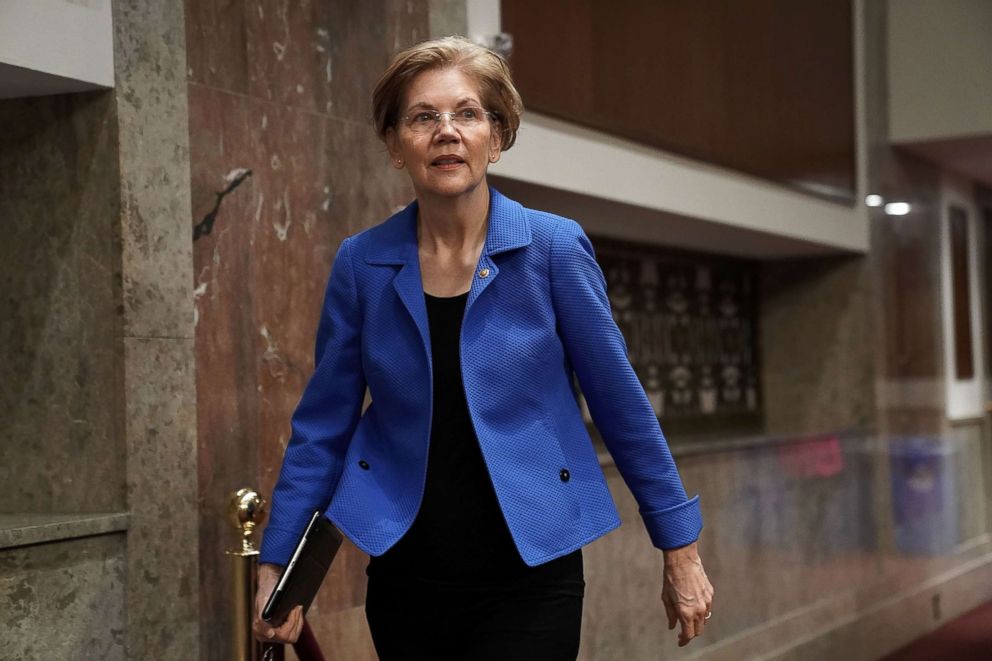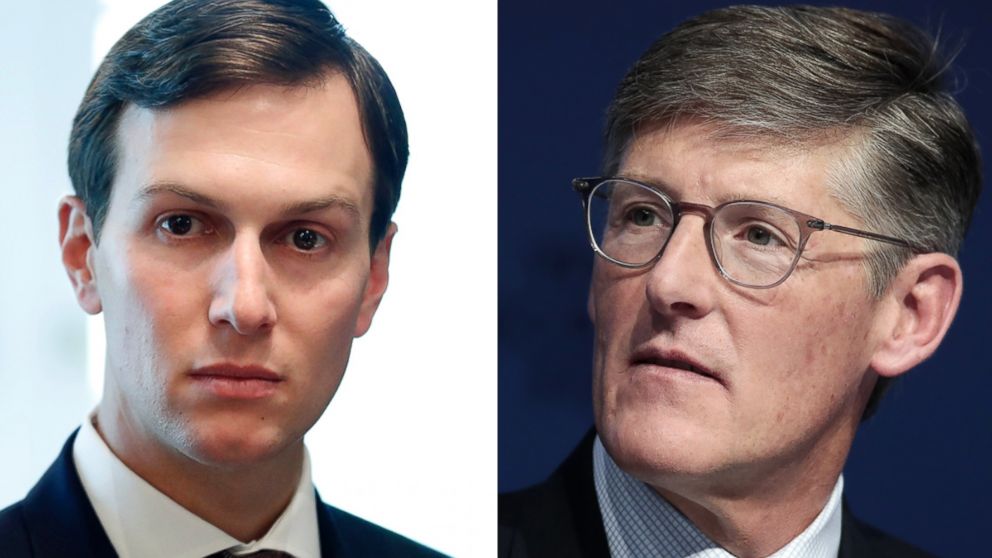Citigroup says loan to Kushner family business 'completely appropriate'
One of the nation’s largest banks said a loan made to Kushner Companies last year was “completely appropriate” despite questions about the timing.
The loan closed March 31, 2017, less than a month after Citigroup chief Michael Corbat met at the White House with President Donald Trump’s son-in-law Jared Kushner, who has faced questions about potential conflicts between his government role as a senior adviser to the president and his loyalty to his family’s real estate firm.
The 2017 meeting was first reported by the New York Times in Feb. 2018.
In a letter obtained by ABC News and addressed to Democratic Senators Elizabeth Warren, Thomas Carper and Gary Peters – as well as to Democratic Rep. Elijah Cummings – who had requested additional information, Citi general counsel Rohan Weerasinghe sought to assure the lawmakers “This transaction was done in the normal course of Citi’s commercial real estate lending business.”

The lawmakers’ March 8, 2018 letter to Corbat questioning the loans said: "Federal ethics laws prohibit federal employees from profiting from their government service, and Mr. Kushner's refusal to fully divest from his financial holdings raises questions about his behavior as a Senior Adviser to President Trump."
“It would be a serious matter if the loan provided to Kushner companies by Citigroup resulted in a violation of federal ethics laws,” the letter continued.
Citi’s letter in response said: “The Kushner family has been a client of Citi for decades” and played down the timing of the loan and Corbat’s meeting with Kushner.
“Transactions of this nature take a long time to come to fruition and Citi had begun exploring this loan in late 2016,” the letter said.
The bank’s general counsel added that Corbat “was unaware of the transaction” until a report in The New York Times. By the time Corbat and Kushner met “the loan was far along the standard process,” the letter said.
Corbat had requested a meeting with Kushner to discuss U.S. trade policy and NAFTA, the bank said.
Citi provided $325 million for a property in the Brooklyn neighborhood known by the acronym DUMBO for "down under the Manhattan Bridge overpass."
“Nothing related to the DUMBO loan or any other personal business with Mr. Kushner or the Kushner Companies was discussed,” the bank said.
The remaining financing for the property was provided by Apollo Global Management, a firm that has also faced questions about loans to Kushner Companies after the Times reported Joshua Harris, one of its founders, met at the White House with Kushner. The Times cited an Apollo spokesman as saying Harris was not involved in the decision to loan money to Kushner Companies and that the loan “went through the firm’s standard approval process.”
Peter Mirijanian, a spokesperson for Abbe Lowell, Kushner’s attorney told ABC News: “Mr. Kushner has met with hundreds of business people during the campaign, transition and in the Administration to hear ideas about improving the American economy. Mr. Kushner has had no role in the Kushner Companies since joining the government and has taken no part of any business, loans, or projects with or for the Companies after that.”
The lawmakers also sent Apollo sent a letter questioning its loans but its response to the congressional inquiry was not immediately available.
Other lenders face an inquiry from the New York State Department of Financial Services, which is exploring their relationships with Kushner and his family business.
Late Wednesday, Carper, one of the Democratic senators who had questioned the loans, said the Citi response was being reviewed, “but these questions regarding potential conflicts of interest have plagued this Administration ever since then-President-elect Trump refused to divest from his business interests.”
“The Trump Administration should require all senior White House officials to fully divest from all personal business interests. Anything less will only ensure that members of Congress continue to raise questions as part of their constitutional responsibility to conduct oversight of the executive branch," Carper said in a statement.




